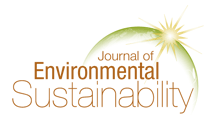Creative Commons License

This work is licensed under a Creative Commons Attribution 4.0 International License.
Abstract
Significant progress toward sustainability will require effective collaboration among governments, businesses, non-governmental organizations, and citizens. But research on multi-stakeholder collaborative efforts as tools for achieving environmental results has identified an apparent paradox. Collaborative efforts can be extremely effective in enlisting participation of diverse participants, heightening awareness of critical problems, and catalyzing actions in the absence of clear public policy requirements; however, they may not be effective at achieving specific quantitative objectives. This paper illustrates this paradox, based on the experiences of the “Sustainable Silicon Valley” (SSV) project in the San Francisco (California) Bay Area. SSV is a multi-stakeholder collaboration among business, government, and environmental organizations. In 2003, SSV declared a goal of reducing Silicon Valley’s CO2 emissions by 20 percent compared with 1990 levels. Although Silicon Valley did achieve significant reductions in CO2 emissions compared with predicted increases, SSV did not come close to achieving the goal of 20 percent reductions for the Silicon Valley region as a whole. The experience of Sustainable Silicon Valley suggests that collaborative efforts can achieve significant progress in mobilizing leadership and support for environmental initiatives. But collaborative efforts alone may not be sufficient to achieve specific environmental goals such as a regional CO2 emissions reduction target.
Recommended Citation
Melhus, Peter and Paton, Bruce
(2012)
"The Paradox of Multi-Stakeholder Collaborations: Insights from Sustainable Silicon Valley’s Regional CO2 Emissions Reduction Program,"
Journal of Environmental Sustainability: Vol. 2:
Iss.
2, Article 7.
DOI: 10.14448/jes.02.0007
Available at:
https://repository.rit.edu/jes/vol2/iss2/7
